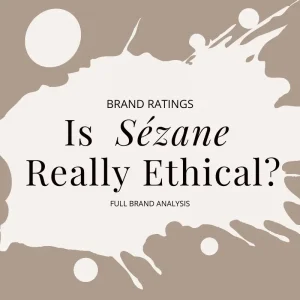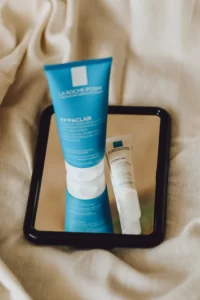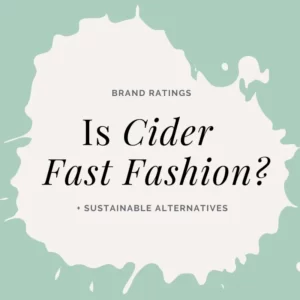We’re reader-supported. The following post contains affiliate links. If you click through a link and make a purchase, we may receive a commission. We only partner with brands who share the same values as we do.
In the following article, we look at the question Is Banana Republic ethical?
We present facts and information, including the brand’s sustainability initiatives, environmental commitments, and where its clothes are made.
Banana Republic is a fashion brand creating a range of affordable business clothing, casual clothing, shoes, and accessories for men and women.
The brand was founded in 1978 by Mel and Patricia Ziegler, global retail giant Gap Inc, who bought and took control of the company in 1983 and remains the parent company of Banana Republic today.

Sustainability Score
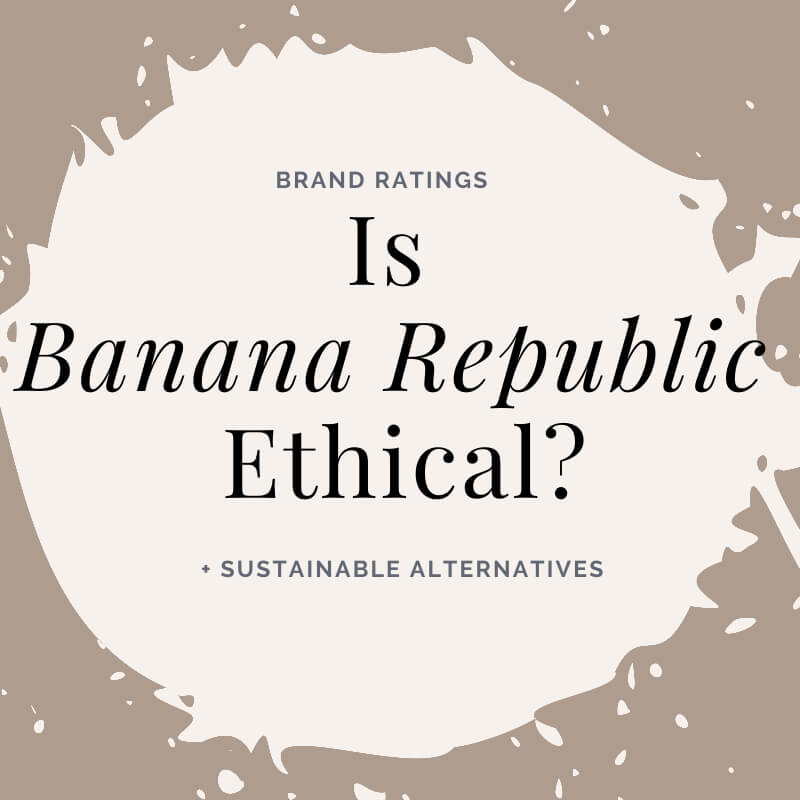
Banana Republic and parent company Gap Inc. are taking steps in the right direction regarding its environmental policy, sustainability initiatives, and improving working conditions in its supply chain; however, the brand still has a long way to go.
Is Banana Republic Fast Fashion?
While we would not consider Banana Republic in the same fast-fashion league as mass-produced brands such as Shein and Zaful, we would consider Banana Republic a fast-fashion brand. This is because the brand and parent company Gap Inc. creates extensive collections of clothing to be sold at cheaper price points.
What Materials Does Banana Republic Use?
The majority, 97%, as specified by parent company Gap Inc. of Banana Republics fiber consumption, is cotton, polyester, nylon, and manufactured cellulosic fibers (including rayon and modal).
The brand recognizes the need to move towards more sustainable materials. However, the brand still only sources a tiny percentage of its fibers from sustainable materials.
Cotton
Gap Inc. has set the goal to move towards 100% of cotton from more sustainable sources by 2025; the company is currently at 54% sourced sustainably, meaning 46% of cotton used in Gap Inc. brands aren’t sustainably sourced.
Recycled Polyester
The brand still uses vast quantities of polyester, with only 5.9% of synthetic fibers (polyester and nylon) coming from recycled sources. Gap Inc. has set a target to increase its sourcing of recycled polyester by volume to at least 45 percent of their polyester use by 2025. However, judging by the 2020 figure, the brand needs to step up.
Banana Republic offers a ‘shop sustainably’ section on its website, highlighting clothing made from sustainably sourced materials, including organic cotton, Tencel, and recycled fabrics; however, this is still a very small percentage of the brand’s overall collection.
Is Banana Republic Carbon Neutral?
No, Banana Republic is not a carbon-neutral brand.
B.R’s parent company Gap Inc. is taking steps to reduce its carbon footprint, including signing onto the UN Fashion Industry Charter for Climate Action and committing to carbon neutrality by 2050.
The brand has implemented schemes including installing solar panels in production facilities and purchasing renewable energy. In addition, the brand is reducing its reliance on wood-based fabrics sourced from ancient or endangered forests to prevent deforestation and carbon emissions.
Where are Banana Republic Clothes Made?
Gap Inc. publishes a complete list of partner Tier 1 suppliers. While they don’t specify which Banana Republic products are cut and sewn in what factory, most Gap Inc. group’s clothing is made in Vietnam, China, and India.
Regarding the brand’s transparency, Banana Republic scored 49% overall in the Fashion Transparency Index, which highlighted that the brand is addressing some of its crucial spotlight issues, including global warming and gender inequality.
Gap. Inc audits its factories and scores on a green, yellow, red system. The goal is for 2025, 80 %of Gap Inc. sourcing will be allocated to green-rated factories. In 2020 currently, only 54% of sourcing was from green-rated facilities, while 46% came from yellow-rated factories.
Is Banana Republic Cruelty-Free?
Banana Republic prohibits the use of Fur, Angora and prohibits feathers and down plucked from live birds. However, the brand does use skins and leathers from animals bred for the food industry. You can read the full animal welfare policy here.
Sustainable Alternatives to Banana Republic
While Banana Republic is taking steps toward more responsible production, many other great brands are already committed to ethical production and the use of sustainable materials. Check out a few of our favorites below.
1. Valani

Sustainability: Ethical vegan fashion made with sustainable materials including Tencel, organic cotton, banana fabric, etc. Use of low-impact dyes.
Best for: Relaxed dresses
Sizes: US 0-12
Ships to: the US & Canada
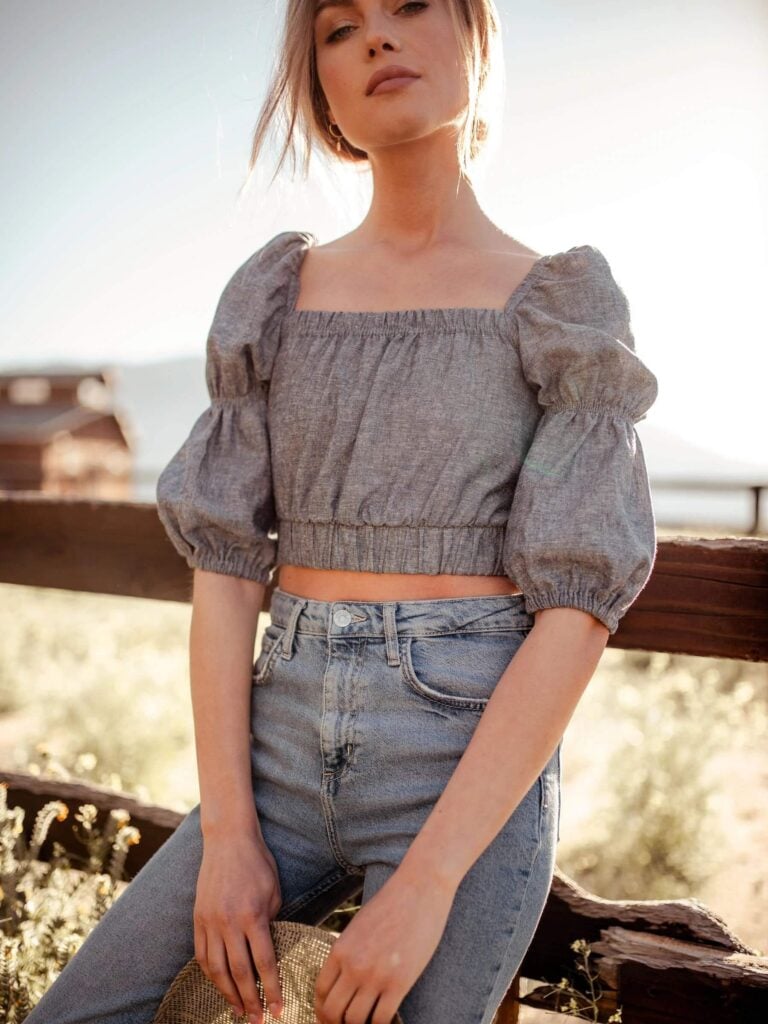
2. Thought

Sustainability: Sustainable materials including organic cotton, hemp, and bamboo, and responsible sourcing
Best for: Casual clothing
Sizes: XS-XXL
Ships to: Worldwide
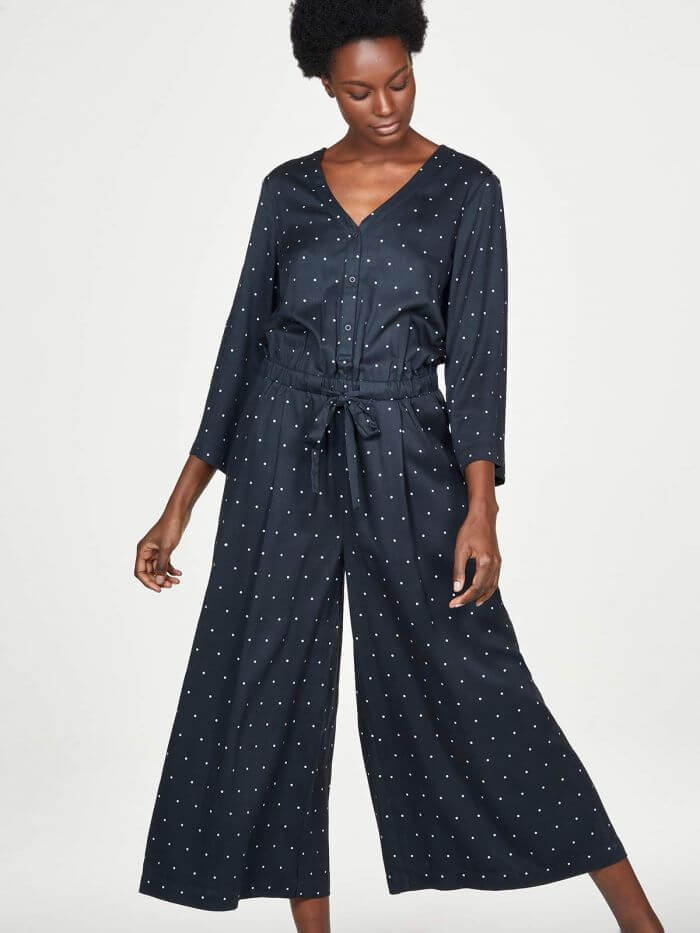
3. Baukjen

Sustainability: Certified B Corporation ensures sustainable and ethical production of clothing, including responsibly sourced and sustainable materials.
Best For: Business casual and casual clothing
Sizes: UK 6-18 / US 2-14
Ships to: Worldwide

4. Sézane

Sustainability: Certified B corporation creating luxury fashion from sustainable materials and recycled materials
Best for: Occasionwear and french style looks
Sizes: US 2-14
Ships to: Worldwide
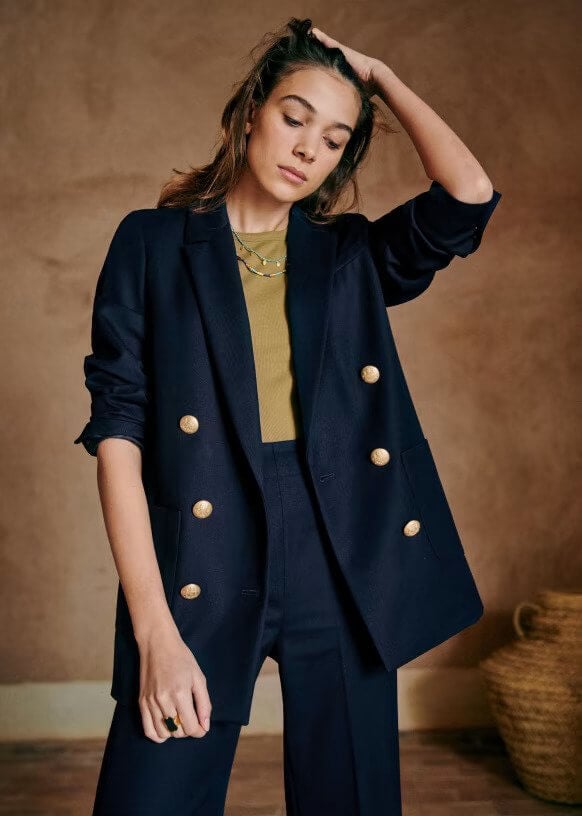
Wrapping Up: Is Banana Republic Ethical?
We hope you’ve enjoyed the article, and now have all the information to make your own decision on whether you think Banana Republic is ethical.
If you enjoyed this brand analysis, make sure you check out our others including Athleta, Uniqlo, Madewell, Free People, Zaful, and more.
Alternatively, discover more amazing brands including our top picks for sustainable dresses, and affordable fashion brands.

